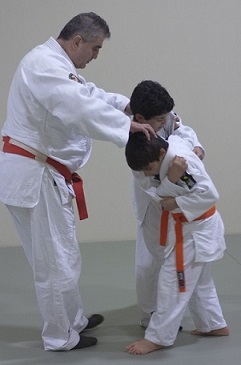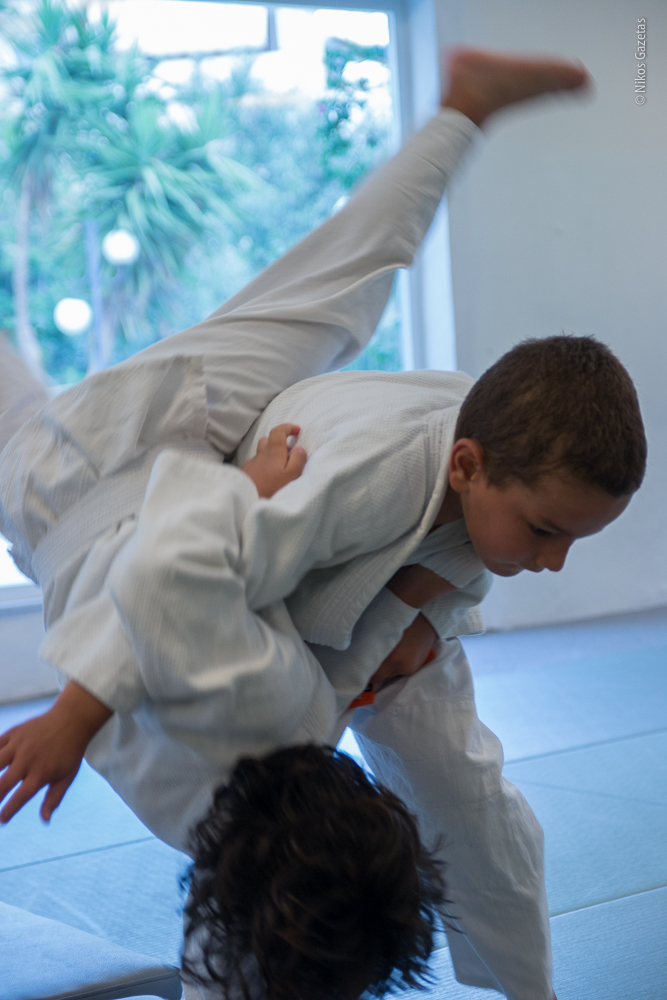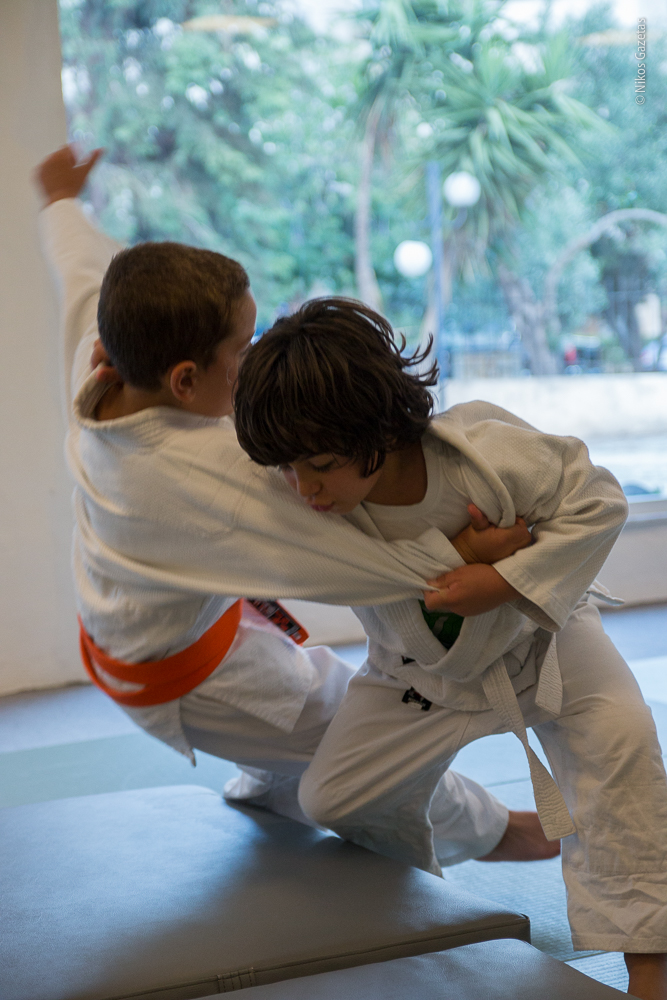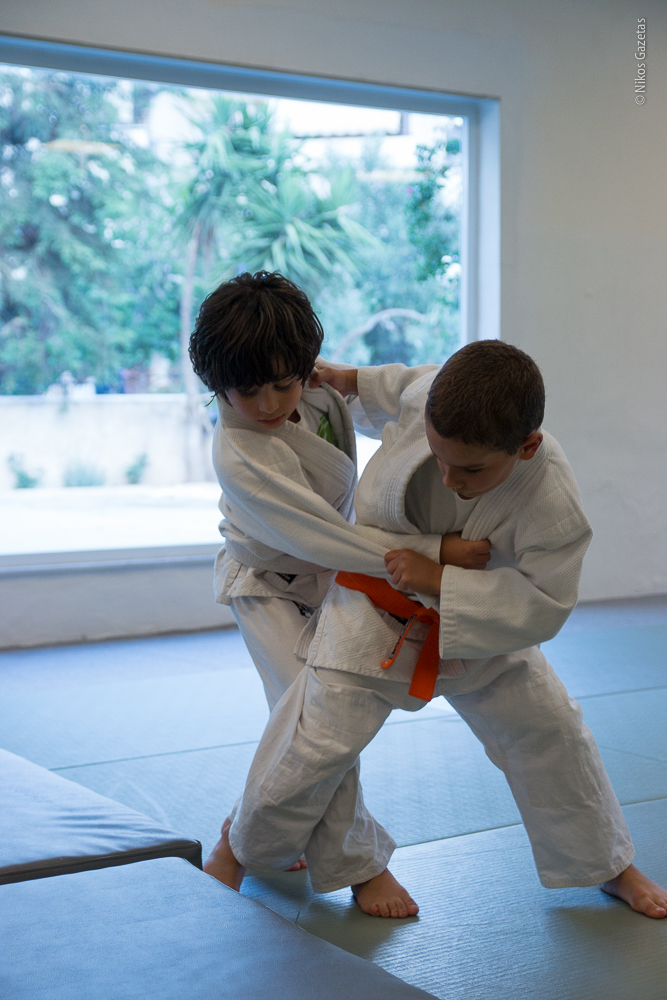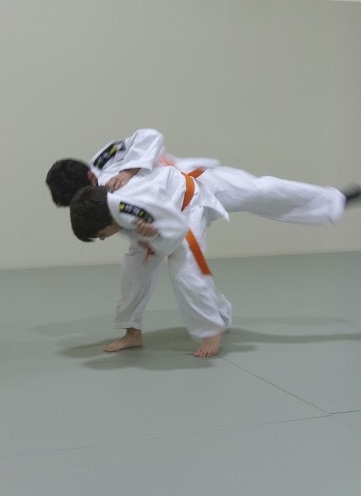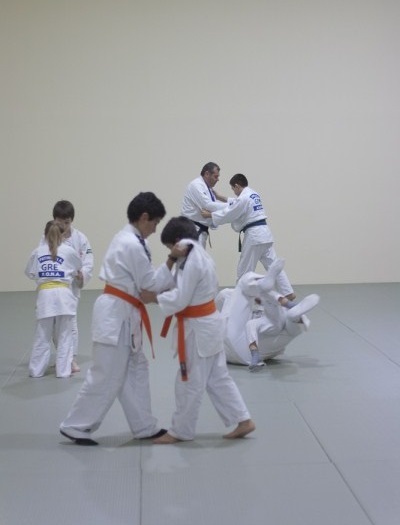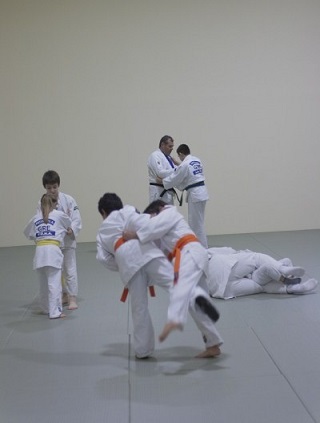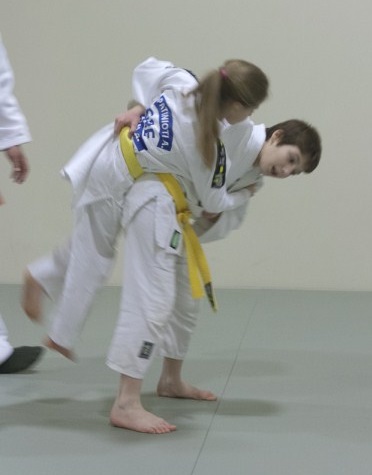Judo Junior
The benefits of Judo for children
• Physical
• Intellectual
• Social
• Psychological
• Relaxation
• Setting goals
• Development of attention and meditation
• Uniformly development of all muscle groups
According to research on exercise, active kids have improved physical condition and fewer chronic health problems than children who are static.
• Intellectual
• Social
• Psychological
• Relaxation
• Setting goals
• Development of attention and meditation
• Uniformly development of all muscle groups
According to research on exercise, active kids have improved physical condition and fewer chronic health problems than children who are static.
The activities retained and supported for a long time affect the kinetics of the brain. The process of gradual learning, combined with discipline, can be used as a yardstick for other obligations of children, such as reading for school, but also the way we interact with each
• working to achieve, to conquer of a belt or winning a match.
• recognize and accept the rules
• work hard and persistently
Children engaged in combat sports, known for their balanced lifestyle. Through discipline, children experience stability (because the goals are specific), and therefore safety since they know their goals and how to conquer them.
• working to achieve, to conquer of a belt or winning a match.
• recognize and accept the rules
• work hard and persistently
Children engaged in combat sports, known for their balanced lifestyle. Through discipline, children experience stability (because the goals are specific), and therefore safety since they know their goals and how to conquer them.
This process is essential to stimulate confidence. The official competitions held under the auspices of recognized sports federations:
• is absolutely safe
• give athletes the opportunity to develop sports claiming discrimination and recognition
• experience the sense of fair play and sport
• achieve points awarded for admission to Superior and Higher Schools
• assert appointment of at the State due to high discrimination Respect is related with martial arts.
Judo teaches students to appreciate:
• The age
• The class
• The experience
• To respect those who know more of them
• helping those who know less
• To build self-esteem with the conquest of small challenges
• is absolutely safe
• give athletes the opportunity to develop sports claiming discrimination and recognition
• experience the sense of fair play and sport
• achieve points awarded for admission to Superior and Higher Schools
• assert appointment of at the State due to high discrimination Respect is related with martial arts.
Judo teaches students to appreciate:
• The age
• The class
• The experience
• To respect those who know more of them
• helping those who know less
• To build self-esteem with the conquest of small challenges
Also students feel a strong sense of camaraderie among them. This feeling is based on common experience and teamwork overcoming challenges has been proved that emotional intelligence can be developed and practiced. Depending on the type and requirements of the event the athlete should develop his emotional approach:
• self-Growing
• Evaluation and analysis of situations
• Observation emotions
• Reaction to the new treaty (the new feeling)
• Defining strategies and objectives for the regulation and control of emotions
• Devising ways to effectively steer their feelings
• Implementation and training in new practices during training
• self-Growing
• Evaluation and analysis of situations
• Observation emotions
• Reaction to the new treaty (the new feeling)
• Defining strategies and objectives for the regulation and control of emotions
• Devising ways to effectively steer their feelings
• Implementation and training in new practices during training
What should avoid parents of athletes
• the identification of the child with the parent, with consequences the increased demands from the child often fail to respond to character
• Indifference due to increased professional commitments
• the lack of organization of the program with the weight only to courses
• Intervention in the work of training- should be a collaborative relationship
• Indifference due to increased professional commitments
• the lack of organization of the program with the weight only to courses
• Intervention in the work of training- should be a collaborative relationship
Objectives of the parent
• Acquisition of the specific sport knowledge
• Acquisition of medical, nutritional knowledge
• Psychological support child
• Working with coach
• Acquisition of medical, nutritional knowledge
• Psychological support child
• Working with coach
The Lessons
• The ideal age to start a child Judo is about 5 years old
• The ideal duration of the course is approximately 50 minutes
• The security offered by the mattress is necessary to eliminate any fear of injury to the child.
• Condition of the correct guidance of the child in sport is the technical and pedagogical training held by the trainer
• Dealing with a child Judo can focus either in single occupation level in learning the art, or as an alternative exercise, or even as a start of a sporting career
• Training with the basic motto rigor and discipline, but without losing the playful character, is a key feature to enable the child to successfully follow the rules and learn the correct technique of the sport
• The ideal duration of the course is approximately 50 minutes
• The security offered by the mattress is necessary to eliminate any fear of injury to the child.
• Condition of the correct guidance of the child in sport is the technical and pedagogical training held by the trainer
• Dealing with a child Judo can focus either in single occupation level in learning the art, or as an alternative exercise, or even as a start of a sporting career
• Training with the basic motto rigor and discipline, but without losing the playful character, is a key feature to enable the child to successfully follow the rules and learn the correct technique of the sport
Teaching Method
• The training is done in game form
• The intensity and strength kept low
• The techniques are executed with simple and specific ways and combinations.
• Often basic fitness breaks necessary for complete training of the child and for the mental discharge between technical movements and combinations.
• The intensity and strength kept low
• The techniques are executed with simple and specific ways and combinations.
• Often basic fitness breaks necessary for complete training of the child and for the mental discharge between technical movements and combinations.



